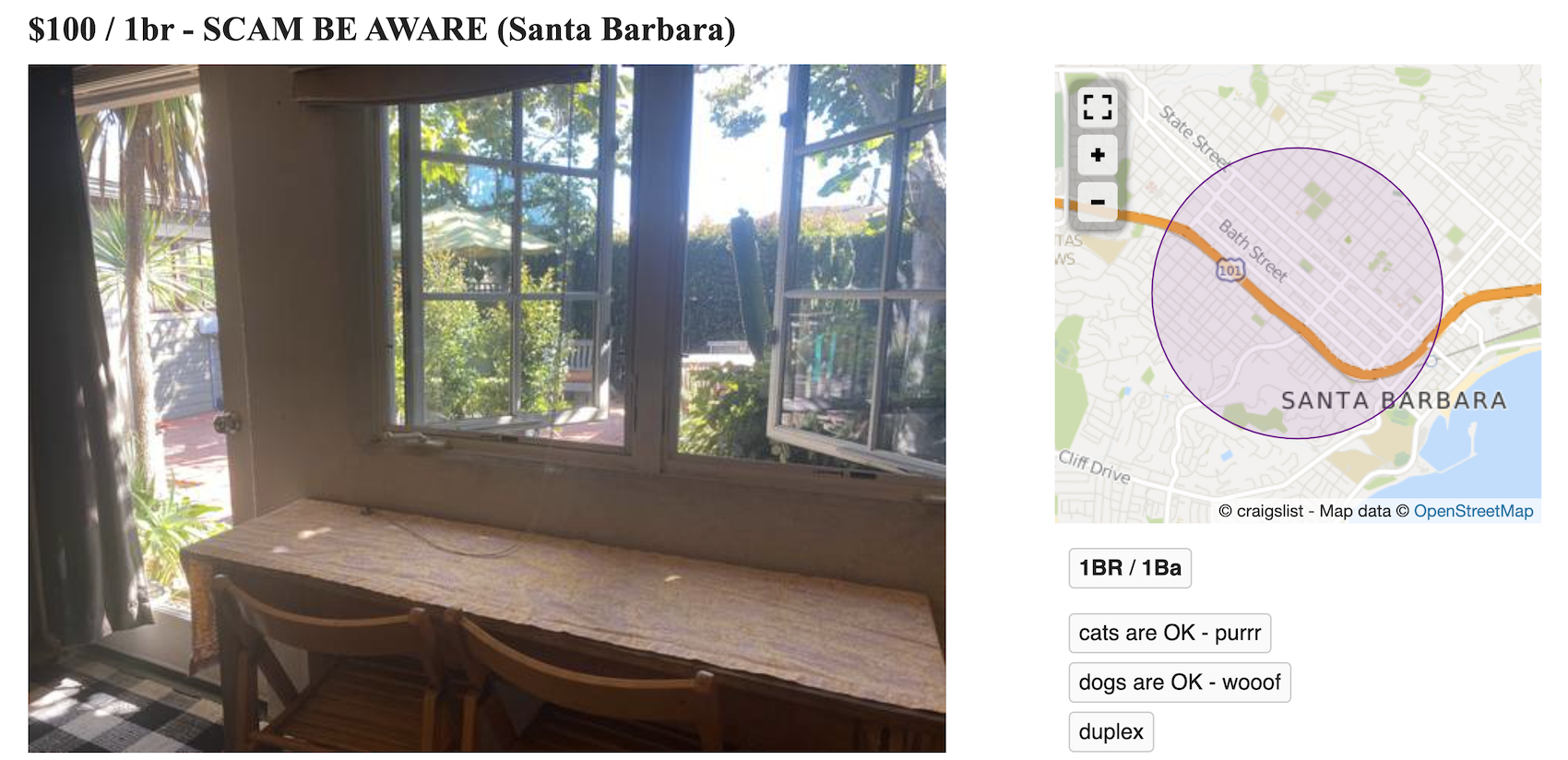Santa Barbara County Officials Warn Residents to Look Out for Rental Listing Scams
As Housing Becomes More Scarce, Real Estate and Rental Scams Are on the Rise Across the County

Finding housing in Santa Barbara can be near impossible for prospective tenants, leaving apartment seekers and incoming students desperate for any available units. But Santa Barbara County officials are now warning residents to be on the lookout for rental listing scams, which are increasing both countywide and across the country as scammers become more aggressive in their tactics.
The Santa Barbara County Housing and Community Development Division sent out a statement Thursday urging potential tenants to “remain vigilant” for rental listing scams, which often lure victims with the promise of low-cost rentals that may not even be available.
“Often, rental listings are copied from legitimate listings by a scammer who then markets the units as their own, perhaps at an appealing rent in order to attract even more unsuspecting victims,” County Housing and Programs Manager Laurie Baker said in the statement. “Apartment seekers must use extreme caution to avoid becoming a victim of scam.”
Rental scams become even more common when there is a high demand for affordable housing, and they can be tough to differentiate from real listings, especially for prospective renters from out of town who are not familiar with the city’s current rental prices.
“Seekers should research the local rental market when searching in a specific area,” the statement said.
Prospective tenants can also ensure listings are legitimate by visiting units in person, if possible, and obtaining a copy of their lease before making any payment. “Legitimate rental owners and managers are willing to show their rental units and provide a copy of their lease agreements before accepting any funds. They also may perform a credit check,” Baker said.
There can be several other signs of a fraudulent listing, according to the Federal Trade Commission (FTC), such as asking for wire transfers, cash, or money orders, which are preferred payment methods used by scammers since it is impossible to track the funds. “Using a credit card, direct payment from a checking account, or a check are better options after verifying the legitimacy of the rental listing and owner or property manager,” the statement says.
Fake listings can often have misspelled words or “all caps” lettering; sometimes, scammers are out of the area, and will promise to show tenants the unit or create fake keys. To avoid being scammed, the FTC recommends not paying a security deposit or first month’s rent before seeing the property or signing a lease — even if the lister promises to refund the money if you do not like the rental.
If you think you have been a victim of a fraudulent rental listing, you can report the crime with the Federal Bureau of Investigation’s Internet Crime Complaint Center, Santa Barbara County District Attorney’s Consumer Protection Unit, and local law enforcement. Though the county’s statement said that law enforcement may have limited capacity to investigate individual complaints, the information “may be helpful in identifying similar cases.”
Have you been scammed by a fake landlord, or paid money for an apartment that was never available? Share your apartment scam stories to news@independent.com by writing 300 words or less about your rental scam experience. Please include your first and last name, city, and telephone number for verification.



